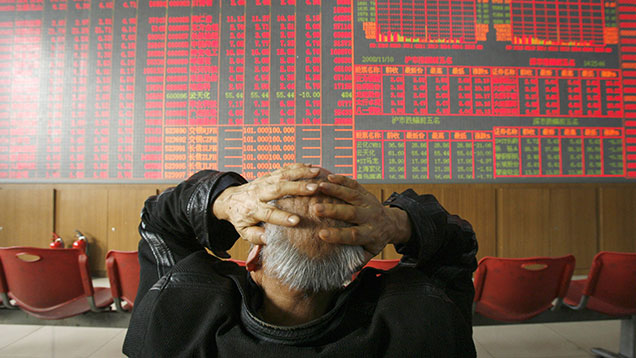How poultry farmers will be affected by China’s slowdown
 © Huyuanjia/Rex Shutterstock
© Huyuanjia/Rex Shutterstock The crisis in the dairy sector may have been the “story of the summer” within the general farming scene, but for the economy as a whole, it is all about China.
That will affect everyone, including poultry farmers, as the all-important Chinese economy starts to slow down, says EFFP senior partner, Siôn Roberts.
Ahead of the Egg and Poultry Industry Conference (Epic), Mr Roberts charts what UK poultry farmers will need to know about how China’s economic cooling and what opportunities may arise as a result.
Why is this important?
“The first thing to remember is that the developing world now accounts for over half of world GDP and China accounts for a good part of that.
See also: How to get your farm products into China
“In addition, after the 2008 financial crisis, China embarked on a massive fiscal splurge, investing heavily in its infrastructure, and that helped all of us in the West when our economies were struggling.
“The problem now is that, with China slipping back into low single-digit growth, if there are economic problems again in the West, China may not be there to bail us out.”
At face value, the slowdown in China also seems like bad news for global commodity markets – especially when one considers that it is now the world’s biggest importers.
But it may not be all bad news, says Mr Roberts.
This is because the Chinese slowdown has, at least in part, been deliberately engineered by the government, to encourage the next phase of economic growth to be more consumer driven, rather than investment and export driven.
As such, China is likely to continue to need to import things such as food and agricultural commodities, in particular beef and dairy, and potentially poultrymeat, to meet its population’s growing demand for food.
Enter for Epic success
The search is on for this year’s Epic Young Poultry Person of the Year.
Presented by the Epic organising committee in memory of egg processor Clive Frampton, the award is intended to recognise emerging young talent.
So if you know someone under the age of 40 who is making a splash in the egg and poultry sector (including duck, turkey and goose production, and the ancillary services), then please let us know by emailing about 500 words to philip.clarke@rbi.co.uk explaining what it is that makes them stand out.
Self-nominated entries are also welcome and the winner will get a free place at Epic.
Closing date is 14 October.
UK situation
Closer to home, the outlook for the UK is also broadly positive, as the economy continues to recover from recession.
“From 2008 to mid-2014 inflation in the UK was outstripping average earnings by at least two-to-one,” says Mr Roberts.
“This put enormous pressure on household spending, even on some of the basics.”
But from the middle of last year, inflation headed towards zero, while earnings have started to increase, driving a rebound in retail sales.
The halving of oil prices since the start of last year has also boosted disposable incomes.
It is a similar picture with food, though the reaction has been somewhat delayed.
While food had become relatively more expensive from 2008 to 2014, as prices increased faster than both inflation and earnings, it has now flipped the other way.
“Food affordability has been improving and, combined with an improvement in household incomes, it means we are slowly starting to see a positive effect on the volume of food purchases.”
Farming outlook
Despite these developments, the outlook for UK farming in general has become tougher.
Whereas during the recession years, currency had devalued and the value of commodities had “gone through the roof”, that trend has now been reversed.
Epic – the basics
- Where? Celtic Manor Hotel, south Wales
- When? 1 and 2 November
- How much? Conference fee, £187.50 plus VAT, banquet £56 plus VAT
- Registration? Visit the Epic event’s website for details
“Currency is the key driver when considering UK farm incomes, and we are seeing agricultural markets hit hard by cheaper imports and less competitive exports,” says Mr Roberts.
Many in the dairy and cereal sectors are now producing at below the cost of production, and there is going to be a considerable restructuring of those industries and an impact on asset prices such as agricultural land.
But not everyone is suffering and the poultry sector continues to prosper relatively well. With the third big harvest in a row now in the barns, feed costs are likely to remain suppressed for the next 12 months at least, and fuel costs are also lower.
Currency is certainly presenting some challenges in the market, as is the avian influenza situation.
But the long-term trend towards greater white meat consumption, a rising population and the commitment of retailers to supply more British poultrymeat, puts poultry production in a better place than many sectors of UK farming.
Where to next?
Siôn Roberts will be addressing the Egg and Poultry Industry Conference at the Celtic Manor Hotel on 1 November, sharing his views on what the medium term has in store.

